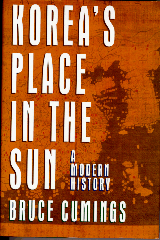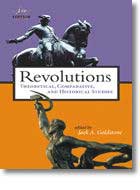
Present at the Creation: My Years in the State Department
by Dean Acheson Buy this book here!
Shadow on the White House
Presidents and the Vietnam War, 1945–1975
Edited by David L. Anderson
description: Harry Truman's administration began searching for
an American response to the clash in Indochina between Frech colonialism
and Vietminh communism in 1945. Thirty years and five administrations
later, Gerald Ford and his aides tried unsuccessfully to solicit additional
aid for South Vietnam from a reluctant Congress. For Truman, Ford, and
every American leader in between, the dilemma in Vietnam hung ominously
over the presidency.
buy this book here!
The Pacific Alliance: United States Foreign Economic Policy and
Japanese Trade Recovery, 1947-1955
by William S. Borden
Eric M. Bergerud, The Dynamics of Defeat: The Vietnam War in Hau Nghia Provience, 1991
buy this book here!
The Wages of Globalism: Lyndon Johnson and the Limits of American
Power
by H.
W. Brands
buy this book here!
 description:
In this volume, nine scholars discuss some of the most critical questions
posed by the events of 1989, revolutions which, like the American, French,
and Russian revolutions, will not be fully comprehended for many decades.
Their articles focus on the political and military role of the United
States in the 21st century; the worldwide decline of the left over the
last decade; Mikhail Gorbachev's search for socialist renewal; the loss
of moral legitimacy in communist systems; the failure of student demonstrations
in China to mobilize broad popular support; the relative success of China's
economic reform; the paradox of Kim II Sung and the importance of historical
and cultural influences; the failure of both the United States and the
Soviet Union to develop a viable world vision; and the need for a comprehensive
plan to promote economic development in formerly communist countries.
description:
In this volume, nine scholars discuss some of the most critical questions
posed by the events of 1989, revolutions which, like the American, French,
and Russian revolutions, will not be fully comprehended for many decades.
Their articles focus on the political and military role of the United
States in the 21st century; the worldwide decline of the left over the
last decade; Mikhail Gorbachev's search for socialist renewal; the loss
of moral legitimacy in communist systems; the failure of student demonstrations
in China to mobilize broad popular support; the relative success of China's
economic reform; the paradox of Kim II Sung and the importance of historical
and cultural influences; the failure of both the United States and the
Soviet Union to develop a viable world vision; and the need for a comprehensive
plan to promote economic development in formerly communist countries.
Buy this book here!
 Author:
Bruce Cumings is an authority on Korean studies. He is the director
of Northwestern University's Center for International and Comparative
Studies, and author of The Origins of the Korean War and other books.
Author:
Bruce Cumings is an authority on Korean studies. He is the director
of Northwestern University's Center for International and Comparative
Studies, and author of The Origins of the Korean War and other books.
Buy this book here!
 The Johnson
Years, Volume Three
The Johnson
Years, Volume Three
LBJ at Home and Abroad
Edited by Robert A. Divine
buy this book here!
 description: From the American Revolution to the conflicts in Afghanistan,
revolutions have played a critical role in the course of history. Insight
into the causes of revolutions and the factors that shape their outcomes
is critical to understanding politics and world history--and REVOLUTIONS
is a reader designed to address this need. Part One offers a combination
of classic treatises and late-breaking scholarship that develops students'
theoretical understanding of revolutionary movements. Part Two shows students
how these theories play out in real life through rich, accessible accounts
of major revolutionary episodes in modern history.
description: From the American Revolution to the conflicts in Afghanistan,
revolutions have played a critical role in the course of history. Insight
into the causes of revolutions and the factors that shape their outcomes
is critical to understanding politics and world history--and REVOLUTIONS
is a reader designed to address this need. Part One offers a combination
of classic treatises and late-breaking scholarship that develops students'
theoretical understanding of revolutionary movements. Part Two shows students
how these theories play out in real life through rich, accessible accounts
of major revolutionary episodes in modern history.
Buy this book here!
 America
in the World : The Historiography of US Foreign Relations since 1941
America
in the World : The Historiography of US Foreign Relations since 1941
by Michael J. Hogan
 The American
Age: United States Foreign Policy at Home and Abroad 1750 to the Present
The American
Age: United States Foreign Policy at Home and Abroad 1750 to the Present
by Walter Lafeber
buy this book here!
 Leffler,
Melvyn P. A Preponderance of Power: National Security, the
Truman Administration, and the Cold War. Stanford Nuclear Age Series,
gen. ed., Martin Sherwin. California: Stanford University Press, 1992.
Leffler,
Melvyn P. A Preponderance of Power: National Security, the
Truman Administration, and the Cold War. Stanford Nuclear Age Series,
gen. ed., Martin Sherwin. California: Stanford University Press, 1992.
Buy this book here!
"Leffler argued that to prevent fears from becoming realities, and to prevent a repeat of past mistakes, the United States developed a foreign policy based on a “Preponderance of Power.” The policy called for a grand strategy which identified national security interests and then formulated ways to attain them. The plans entailed the use of economic, military, political, and diplomatic means. National security demanded an “open international economy and a favorable balance of power.” America proposed: 1) to rebuild Western Europe; 2) to rely on a reconstructed Germany and Japan to maintain a viable and strong Western European economy; and 3) to promote gradual decolonization of Third World nations (“the periphery”) in order to secure needed cheap raw materials for the Western European infrastructure.
The strategy of preponderance depended on a geo-strategic viewpoint which defined power as the control of resources, the expansion of the industrial infrastructure, and the extension of overseas military bases. The increase in trade would benefit not only the Americans but others. Anything less than the preponderance of military, economic, political, and ideological power would lead to the dominance of the Soviets over the worlds’ economic and political systems. Such hegemony would necessitate a radical restructuring of the American economy, a diminution of democratic freedoms, and the creation of a garrison state. "
The White House Years
by Clare Boothe Luce, Henry A. Kissinger
Kissinger: A Biography
by Walter Isaacson, 1992
Korean War: An Encyclopedia
by Stanley Sandler (Editor) buy this book
here!
Khrushchev Remembers: The Glasnost Tapes [excerpt]
by Nikita Khrushchev, Jerrold L. Schecter (Translator), Vyacheslav V.
Luchkov (Editor), Nikita
S. Krushchev buy this book here!
On Every Front: The Making and Unmaking of the Cold War
by Thomas
G. Paterson
buy this book here!
Major Problems in Asian American History: Documents and Essays
(Major Problems in American History Series)
by Lon Kurashige, Alice Yang Murray, Thomas G. Paterson
buy this book here!
The Trial of Henry Kissinger [online]
by Christopher Hitchins
Verso Press, 2001
Pentagon Papers [online]
Development and Social Change: A Global Perspective (Sociology
for a New Century)
by Philip McMichael
The Last Years of the Monroe Doctrine, 1945-1993
by Gaddis Smith
buy this book here!
The Grand Chessboard: American Primacy and Its Geostrategic Imperatives
by Zbigniew K. Brzezinski
buy this book here!